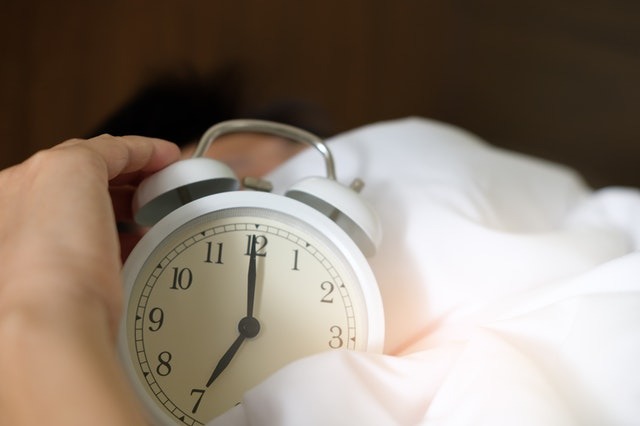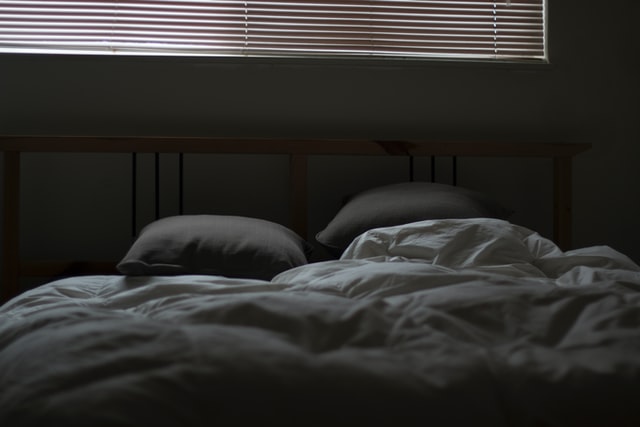By now, you should be aware that sleep deprivation is a productivity nightmare. That is, if you frequently find it hard to maintain a good night’s sleep, chances are you’re constantly unproductive. While some small sleep hacks may help you get quality sleep every now and then, they aren’t enough to make you productive day after day.
If we’re measuring productivity on a scale of 1 to 10, it would be better to aim for a consistent 8 than a 2 on one day and a 10 another. To continuously reap the immense benefits of sleep on productivity, you have to maintain good sleep consistently. In this article, we discuss the fundamental practices for good sleep. If you remember and apply them, you can harness productivity consistently by sleeping better naturally.
1. Observe Your Sleep-Wake Cycle
Our bodies like consistency. In the case of sleep, your body desires a regular sleep-wake cycle to operate optimally. Researchers link irregular sleep patterns to poor health and non-productivity. They claim that if your sleeping and waking times aren’t consistent, chances of developing health problems like high cholesterol, blood sugar, and even heart disease are high. You’ll also feel consistently fatigued, which ruins your productivity.
The following tips will help you keep a regular timeline.
Go to bed and wake up around the same hour

If you’ve ever practiced regular sleeping times, you must have noticed that you wake up at the same time. This is because, for a few days, your body can get used to your sleep duration to create a subconscious alarm when time elapses. To avoid not getting sleep, set your sleeping time to the period you’re usually tired. Set an alarm to get used to your schedule, but after some time, even when you’re alarm fails, you won’t.
Avoid binge sleeping
On weekends or days you don’t have early morning obligations, it can be tempting to oversleep. But to maintain good sleep, you need to avoid this habit. Nap later in the day if you have to, but fill your morning with some productive activities to maintain the sleep cycle. Some people may find it weird, but I usually wake up early even during weekends to do leisure activities. It makes even lazy days productive.
Avoid sleeping early
Binge-sleeping on weekend mornings is as bad as giving in to sleep at 8 while you usually don’t go to bed until 10. This can cause you to rise earlier than usual, which can be frustrating. Even if you feel sluggish after dinner, keep yourself busy with a book, a relaxing bath, meditation, or journaling – whatever helps you relax.
Nap the right way

One common mistake many make is to nap later in the day, hence, disrupting their night sleep schedule. Even worse is when they don’t time their nap, which causes them to overdo it. Check out the dos and don’ts of power napping and do it right to keep a consistent sleep cycle.
2. Balance Your Light Needs
Light influences how your brain perceives sleep time. When in the dark, your brain produces more melatonin (a sleep-inducing hormone) than it does in the light. Therefore, you stay more alert when exposed to light and more sleepy when in darkness. However, modern lifestyles expose us to more light, especially artificial types, than is good for us.

Here is how you can control light to maintain good sleep:
- Expose yourself to natural light: Sunlight helps balance the circadian rythmn, hence promoting long, quality sleep. It helps you stay alert during the day so you can rightfully feel sleepy at night.
- Light your home or workspace with as much sunlight as you can: keep curtains open and work near the window.
- Use a light therapy box: these devices emit sunlight-mimicking light and help you when you can’t access natural light, such as during winter or in dark workspaces.
- Darken your room when sleeping to promote a sleeping environment: a sleep mask can help when everything else fails.
- Evade bright screens for two hours before bed time: these keep you alert instead of relaxed and ready to sleep. You can reduce brightness, use devices with small screens, or incorporate light-changing tech to avoid the blue light and overall brightness.
- Use dim lights in the middle of the night: if you wake up in the middle of the night, avoid bright lights because they snap you back to alertness.
3. Stay Active
Studies reveal that long-term exercise helps you sleep better. When you exercise, you release endorphins which relieve pain and stress – some of the sleep inhibitors. Moreover, it promotes slow-wave, or in simpler terms, deep sleep. Through a complex process, physical activity helps you get quality sleep.

Generally, the more active you are, the better your sleep. As mentioned earlier, this has to be long-term exercise. Based on exercise and insomnia research, you can start sleeping better after you exercise for four to 24 weeks. Be patient and your good sleep will lead to more productivity.
Of particular note: you should time your exercise more than three hours before bedtime, otherwise you’ll have trouble sleeping due to existing high levels of endorphins. Exercise in particular timelines and gauge your ability to sleep after so you can determine the best window of time to workout.
4. Be Smart About Your Eating Habits
You are what you eat. This statement also applies to your ability to sleep well and, subsequently, your productivity levels. While overall eating habits will affect your sleep, what you eat a few hours before bedtime matters the most.

Follow these tips for eating and drinking smartly for quality sleep:
- Avoid drinking alcohol: almost 20 percent of adult Americans have a nightcap to help them fall asleep. While they may feel drowsy enough to fall into slumber, they’re actually having “fake sleep” and are meddling with proper sleep.
- Avoid caffeine and nicotine: although smoking and drinking too much coffee can affect your sleep for the next half day, limit your use, especially a few hours before bed.
- Limit your liquid intake before bed: several trips to the bathroom after consuming a ton of fluids will ruin your mood and interrupt your sleep.
- Limit eating refined carbs: filling your day with junk food is a recipe for sleep disaster, research shows. This type of eating can cause hiked sugar levels and crashes, which raise your cortisol levels and make it tough to sleep.
You don’t have to avoid pasta and pizza completely. Simply stay conscious about what and in what amounts you’re consuming. Always try to eat and drink healthy. If I must have a snack before bed, I usually go for light, healthy alternatives, like fruits, yogurt, and cereal. Find out what works for you.
5. Make Your Bedroom More Sleep-Friendly
Think about it: does your brain know it’s bedtime because your sleeping space is different? Or do you make it hard to differentiate TV time and bedtime. It makes all the difference. Yet, you don’t have to make enormous changes to attain a sleep environment.

Some fundamental tips:
- Keep your bedroom dark.
- Mask unwanted background noise.
- Avoid bringing work or any unfitting activities to bed.
- Keep the bedroom cool.
- Keep your bed as comfortable as you can – if you can afford a better mattress, get one.
- Observe hygiene.
6. Adapt to Mid-Sleep Interruptions
For many reasons, sleep can be interrupted in the middle of the night. This can get stressful, keeping you up for the rest of the night and, as a result, ruin the next day’s productivity and moods. It has happened to me a couple of times, but I learned to adapt.

If you wake up at night and can’t get back to sleep, remember these tips:
- Do something non-stimulating, like meditating or thinking of things you’re grateful for – whatever works for you.
- Stop trying to sleep and instead, relax your body and mind.
- Postpone any of your worries.
- Choose to not think about your inability to sleep.
- Ignore what time it is.
- Don’t check emails or anything that’ll cue your brain to awaken.
Relax and keep your sleeping environment constant. You’ll find yourself drifting back to sleep gradually.
7. Let Go Instead of Worrying About Sleep
A key reason you find it hard to fall asleep and keep sleeping is because you worry too much. I’m not talking about the worries of life – but worrying about sleep itself. You go to bed thinking:
- “I can’t sleep, I’m screwed. Why can’t I simply sleep?”
- “I drank coffee just recently; I definitely ruined my chances of sleeping.”
- “I just woke up two hours before my wake time. If I don’t fall asleep in the next 10 minutes, I won’t hear my alarm.”

You continue “thinking yourself to sleep,” but it doesn’t work. This frustrates you further and increases your worries that are mixed with other worries that keep you up at night. Unless you let go of worrying thoughts when sleeping, you’ll find it difficult to get sleep. You can worry and fix things when you wake up, but when it’s time to rest, let go and get some sleep.
The Simplest Way to Maintain Good Sleep
Getting good sleep revolves around living a healthy life. Do your best and apply the seven fundamental sleeping tips we’ve outlined. That way, you can rest easy knowing you’ve done your best, which will lead to better productivity. If you break some rules sometimes, it’s okay – that isn’t the end of your good sleep. You’ll sleep better the next day, meaning your productivity won’t take that much of a hit.
Tell us, how do you maintain good sleep in your daily life? Do you find it helps your productivity? Engage with us in the comments section.

